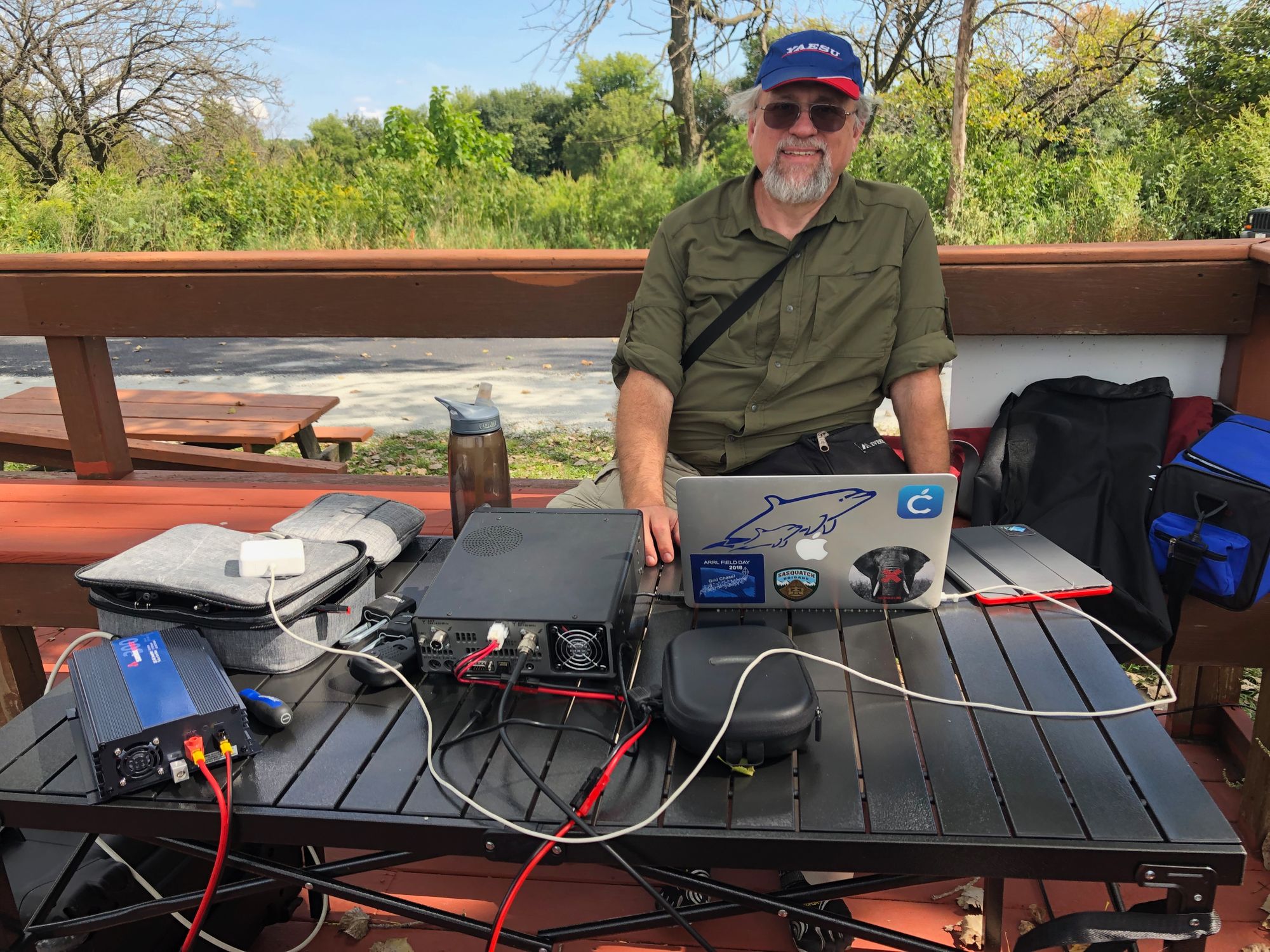Hi! I'm Kevin, callsign WW0SE. I'm going to be writing here about my adventures in amateur radio.
Locally, in Chicago, I work VHF and UHF repeaters, talking with the members of the various clubs I belong to. We have what are called "ragchew" nets, where we talk about whatever has been going on in our lives.
I also work HF (3-30 MHz), which is good for long distance contacts. Because the sunspots aren't in our favor, I use digital modes like FT8. FT8 is good for making contact and signal quality reporting. It works even when there is weak propagation. I've used it to make contacts as far away as Japan or Ukraine!
Since I live in an apartment, I have equipment to work in the field, which I do when I'm camping with my friend W0AXR Scott.
During Field Day 2020, I made some contacts using a Raspberry Pi as the computer attached to my radio for doing FT8.
How I got into Amateur Radio
It wasn't even the first time Scott and I went to Hamvention in Ohio. He picked me up with the camper, and we drove there and set up at the campground at Caesar Creek State Park.
I went along because I love nature and the outdoors, and I have an interest in electronics and with radio and radio history. My uncle had given me some old books about tube radios, and some books on communications electronics, and introduced me to electronic kits when I was a kid. I'd listened to public service, and railroads and aircraft on my scanner. And, sometimes I like to come along when people enjoy their hobbies.
I was filling out my badge, to get into Hamvention, and the volunteer at the gate asked me:
"Why isn't your call sign on your badge?"
"Because I don't have one."
"Why not?"
And he proceeded to tell me that they were doing VE (volunteer examiner) testing at the Hamvention, and let me know of some study sites and places I could take practice exams on the internet.
Thanks to my uncle and my physics classes at university, I had enough understanding of basic electronics and radio waves. What I didn't know was the regulatory part. Hams are subject to Part 97 of the FCC regulations, and that's something you have to know for the exams: It tells us how we are allowed to operate, to use the bands.
At the camper that night, I studied, and the next day, I took the exam, and passed, and a few days later I had my FCC Technician License.
And that's how it started.
You can get your Technician License too.
Now, I was lucky that I had some of the background already, and I could study fast and take the exam right away. Yes, you have to know some radio theory, and some basic electronics, and some regulations. Getting your Technician license is not that difficult, and there are a lot of resources using all kinds of teaching methods. I'll bring it up again as I write this blog.
